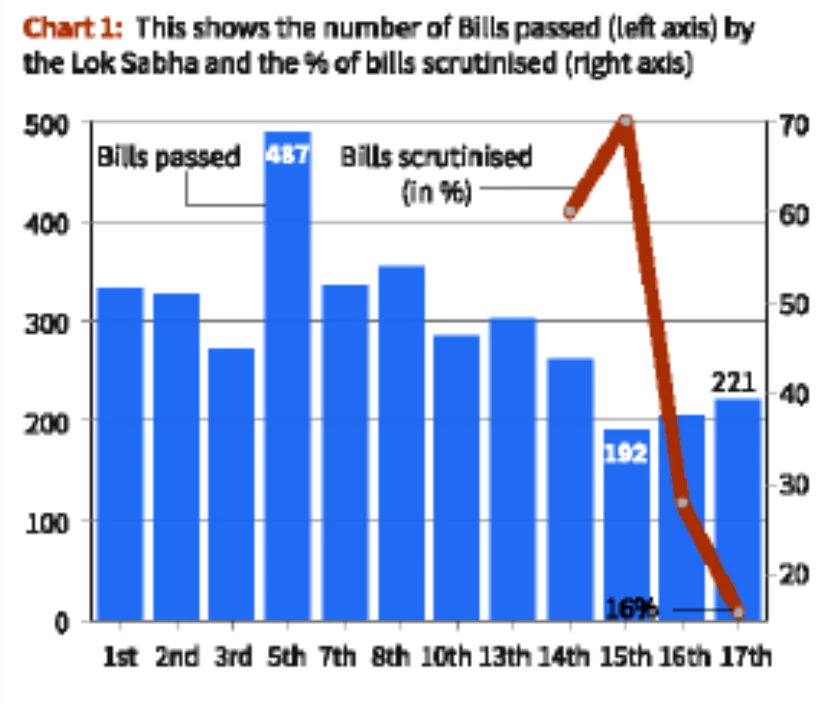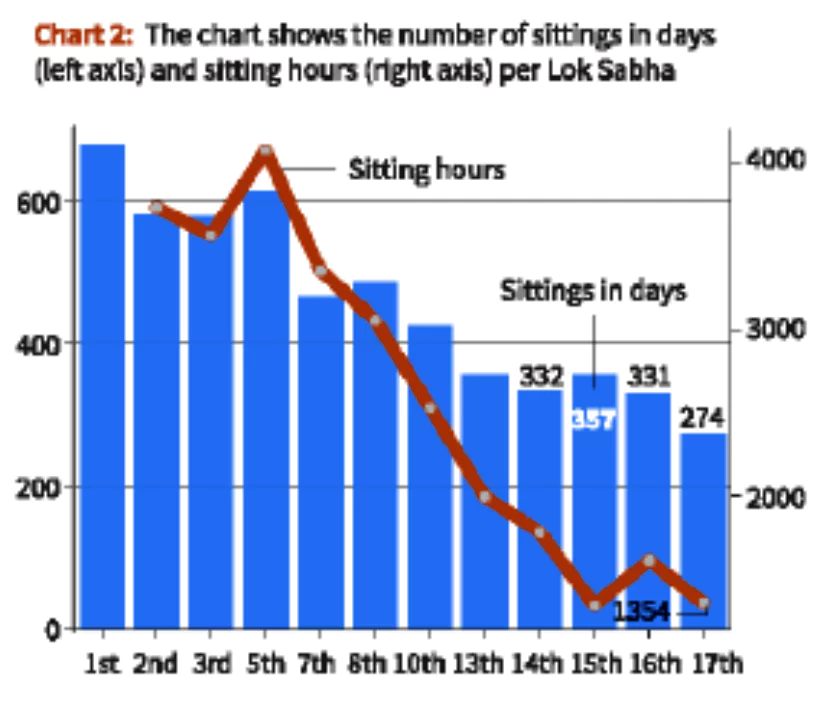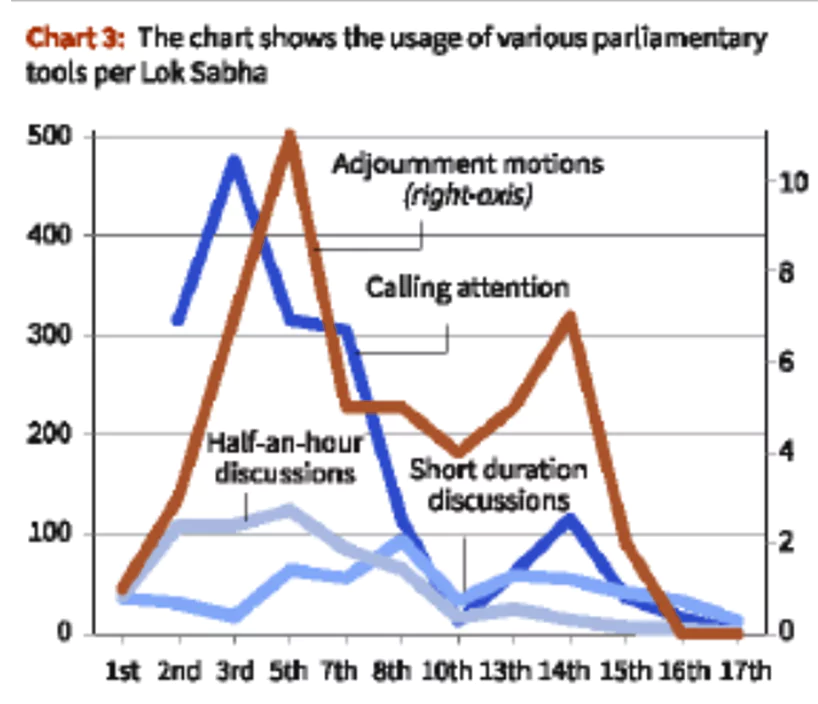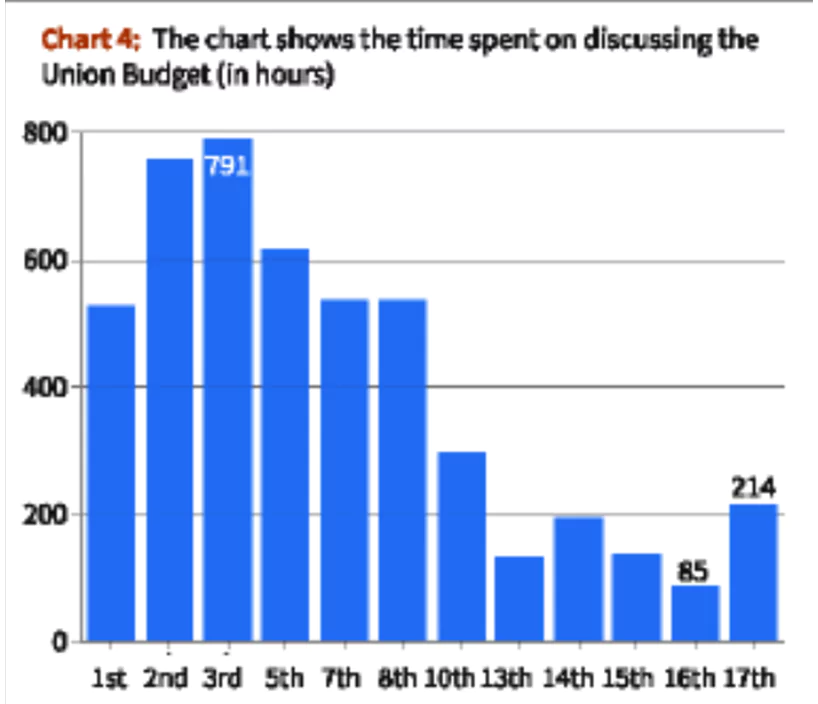![]() 14 Feb 2024
14 Feb 2024
English
हिन्दी
The following data points show that the Parliament functioning has generally been on a decline in the post-1990 period.




News Source: The Hindu
| Must Read | |
| NCERT Notes For UPSC | UPSC Daily Current Affairs |
| UPSC Blogs | UPSC Daily Editorials |
| Daily Current Affairs Quiz | Daily Main Answer Writing |
| UPSC Mains Previous Year Papers | UPSC Test Series 2024 |
<div class="new-fform">
</div>